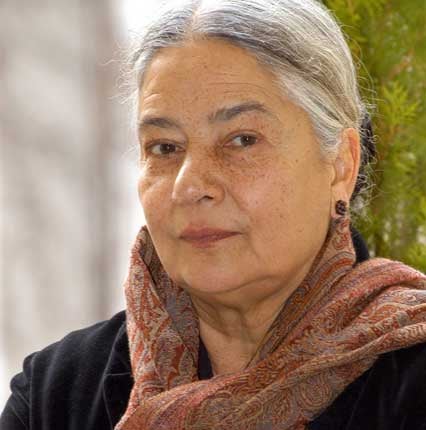The Artist of Disappearance, By Anita Desai
Three windows of opportunity are going, going...gone

Your support helps us to tell the story
From reproductive rights to climate change to Big Tech, The Independent is on the ground when the story is developing. Whether it's investigating the financials of Elon Musk's pro-Trump PAC or producing our latest documentary, 'The A Word', which shines a light on the American women fighting for reproductive rights, we know how important it is to parse out the facts from the messaging.
At such a critical moment in US history, we need reporters on the ground. Your donation allows us to keep sending journalists to speak to both sides of the story.
The Independent is trusted by Americans across the entire political spectrum. And unlike many other quality news outlets, we choose not to lock Americans out of our reporting and analysis with paywalls. We believe quality journalism should be available to everyone, paid for by those who can afford it.
Your support makes all the difference.The three novellas in Anita Desai's new collection, The Artist of Disappearance, are filled with disappointments in human nature, inciting a melancholy that is hard to shake.
The stories are all linked by a passion for arts, but they are actually more about ourselves – the selves that dare to hope, that desperately want to be different, but which then sink back and disappear into ordinariness.
The first and shortest story, "The Museum of Final Journeys", is narrated by a minor civil servant who is posted to an isolated rural district of India. The failed young writer survives this sentence in the wilderness, despite the lack of tennis or proper English tea, by becoming increasingly irritated by the people whose lives he governs. His beloved books run dry, and the loneliness and boredom become so pervasive that he slips into an apathetic coma, until an elderly visitor awakens him with alluring stories about a mysterious museum on a once-grand neighbouring estate. The bored civil servant is enticed by the promise of a "miraculous Xanadu", and the ancient curator takes him on a breathless tour of a museum which is filled with treasures that were sent home by the last son of the estate: priceless figurines, scrolls, ceramics and fans from the Orient.
At last, the civil servant is once again surrounded by beautiful things. But then the real reason for the visit: will he intervene to save the collection from the son's final bequest, an elephant, who is desolately eating her way through the family's remaining wealth?
The second novella is about a bitter and depressed middle-aged English teacher, Prema, who for a while begins to believe in the literary dreams of her youth. A chance meeting with her high-school idol, now a feminist publisher, leads to Prema pursuing a new career as a translator of "undiscovered" novels written in her beloved mother tongue, Oriya, the language of the state of Orissa. This opens up, briefly, a window of possibilities beyond the mundane. But her desperation to have a voice actually results in the window slamming shut. Back to her life as a tired woman with nothing to look forward to, she wonders why she had dared even to hope.
The third protagonist is a recluse, Ravi, who lives in a house high in the foothills of the Himalayas. The adopted son of neglectful parents, who left him every summer while they "seasoned" in Europe, Ravi found comfort in the ants, crickets and trees, so that nature has become the only nourishment that he craves.
After his parents die, the family house is burnt down by his former governess, at last leaving him alone to create "art" from nature's precious materials. His peace is interrupted by superficial documentary makers who are looking for illegal logging and environmental degradation, but accidentally stumble upon his creation. For a moment the TV crew seem inspired by his work.
Each tale evokes flashes of a vanishing reality, taking us back to a post-colonial world as it literally fades and crumbles. Desai's writing is at times as sensuous and charming as some of her best: birds sing with "piercing sweetness"; mushrooms resemble refugees with their "ghostly pallor and caps, hats and bonnets". But, the stories themselves fail to persuade and the disappointments are too explicit, the endings too abrupt. Perhaps aptly, these interlinked stories of human disappointment are beautifully written but ultimately disappointing.
Join our commenting forum
Join thought-provoking conversations, follow other Independent readers and see their replies
Comments